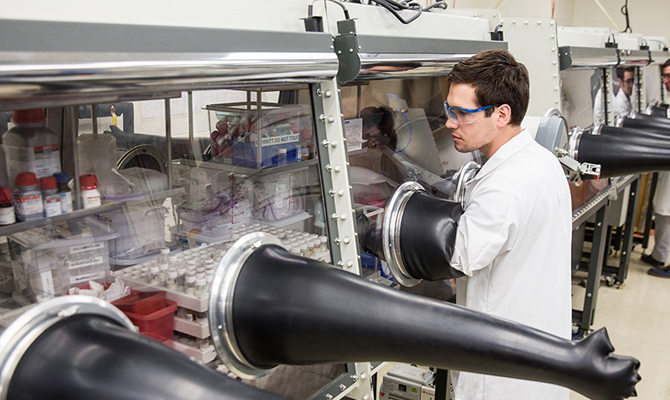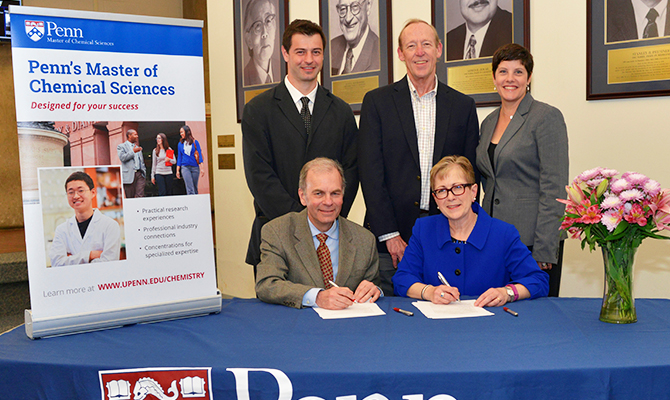As a student in the Master of Chemical Sciences program, you will select one of the six concentrations that best matches your areas of interest. Together with your academic advisor, you will choose from the core concentration courses, below, to develop a curriculum that will allow you to achieve your academic and professional goals. Your concentration courses provide you with the skills and the technical perspective necessary to master a chemical sciences sub-discipline, and will help prepare you to complete the final capstone project.
Students who choose the Biological Chemistry concentration will pursue academic, government, and industrial careers in the chemical, pharmaceutical, biotechnology, and various health care sectors.
- Biological Chemistry I (CHEM 5510)
- Biological Chemistry II (CHEM 5520)
- Macromolecular Crystallography (CHEM 5550)
- Bioinorganic Chemistry (CHEM 5670)
The Environmental Chemistry concentration prepares students for a broad range of careers in academic, government, and industry sectors involving chemical and environmental applications. Environmental chemists first try to understand how the natural, uncontaminated environment works in order to study the effects humans have in the world.
Students in this concentration need to complete a minimum of 4-6 c.u. in either organic, inorganic, physical, or biological chemistry as well as 2 c.u. in either Environmental Chemistry modeling or policy to earn an emphasis in Environmental Chemistry. Students who complete a minimum of 4 c.u. in Environmental Chemistry modeling or policy will earn a second concentration in Environmental Chemistry.
The Inorganic Chemistry concentration prepares students for careers in chemical manufacturing, environmental, chemical engineering, food safety, and mining industries, as well as any sector of the chemical industry.
- Inorganic Chemistry II (CHEM 5620)
- Organometallic Chemistry (CHEM 5640)
- Main Group Chemistry (CHEM 5650)
- Bioinorganic Chemistry (CHEM 5670)
The Materials Chemistry concentration prepares students for employment in research and development of products and materials such as coatings, polymers, composites, superconducting materials, graphite materials, integrated-circuit chips, nanotechnology, and fuel cells.
In order to complete the requirements for this concentration, students must complete two core chemistry courses and two courses in materials that are related to the capstone project.
Students who pursue the Organic Chemistry concentration will be prepared for research and development positions in a range of sectors, such as biotechnology, pharmaceuticals, nanotechnology, and biochemistry.
- Intermediate Organic Chemistry (CHEM 7460)
- Organometallic Chemistry (CHEM 5640)
- Organic Reactions (CHEM 5430)
Pursuing the Physical Chemistry concentration prepares students for research careers in areas such as environmental and analytical chemistry, chemical engineering, and medicine.
- Statistical Mechanics I (CHEM 5210)
- Statistical Mechanics II (CHEM 5220)
- Quantum Chemistry I (CHEM 5230)
- Quantum Chemistry II (CHEM 5240)
- Molecular Spectroscopy (CHEM 5250)
- Chemical Dynamics (CHEM 5260)






